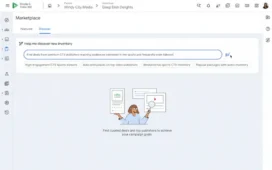Despite widespread criticism of the proposed bill, and many questions as to whether it will actually deliver the intended benefit, the Australian Government is pushing ahead with its proposed restrictions on social media usage, which will see users aged under 16 banned from social apps.
Yesterday marked the next stage of the proposal, with the Government officially introducing the “Online Safety Amendment” bill in Parliament. The next stage, then, is for Parliament to officially vote on the bill, which is likely to happen next week.
And the Government seems very keen to enact it, despite a broad range of experts voicing concerns about the impacts that it’ll have, and the practical realities of its enforcement.
But again, the Government is keen to take action, on behalf of parents everywhere, though as it stands, I’m not sure that this proposal is going to work as the Government expects.
First off, there will be challenges in enforcement.
As per the bill:
“The Online Safety Amendment (Social Media Minimum Age) Bill 2024 (the Bill) amends the Online Safety Act 2021 (Online Safety Act), with the aim of establishing a minimum age for social media use, placing responsibility on social media platforms for the safety of their users.”
So the platforms themselves will be responsible for its enforcement, meaning that each individual app will seemingly have to implement its own systems to detect and block underage users.
Which they’ve never been able to do effectively. Every app does have its own detection systems in place, but even industry-leading processes designed to weed out young users are not 100% effective at doing so. Which the Australian government acknowledges, that some youngsters will still be able to access social apps, despite these regulations. Yet, its stance is that by introducing this into law, that’s a step in the right direction, which will at the least give parents a means to push back on their children’s requests to join social apps.
But more importantly, the Australian Government is yet to provide a standard framework as to how the apps will be measured, and found to be in violation of these laws. Right now, it seems like every app will be judged based on their own processes, which will mean that there’ll be significantly variable approaches to enforcement.
So Meta, which has much more comprehensive age detection systems in place, will seemingly be in a better position than X, for example, which has fewer checks and balances. In terms of enforcement, that seems like a minefield of inequality, that will make this bill largely unenforceable, even when violations are detected.
There has been discussion of an industry standard process for age detection, which the Government will be looking to impose as part of this bill. But the details of that process haven’t been revealed as yet, and those in charge of reviewing potential options on this front seem unconvinced that they’ll be effective either.
With potential fines of up to $US32 million on the line, this seems like a major oversight, and one that could render the whole proposal ineffective from the start. And that’s before you even get into questions as to whether we should be banning young teens from social apps either way.
Because the analysis on this front is varied, with some academics suggesting that social media plays a critical connective role for teens, while some suggest that social platforms can be harmful for certain users.
That last point is probably the most prescient, that social media will have different impacts for different users, and as such, a universal ban for all teenagers won’t be a “solution” to the perceived dangers in this respect.
Indeed, even the research that the Australian Government cites in supporting its teenage ban proposal is not conclusive, with the author of one of the reports highlighted within the proposal noting that the Government has misinterpreted his findings.
So, the bill will potentially be unenforceable, depending on the specific mechanisms in place, and ineffective, based on academic insight.
Oh, and also, messaging apps will be exempt.
At this stage, the bill will cover Reddit, Snapchat, TikTok, Facebook, Instagram and X, with messaging apps, like Messenger and WhatsApp, not part of the current proposal. Newer platforms like Threads and Bluesky are also not currently listed in scope, which leaves a heap of holes in the proposed restriction of social media use.
Because even if kids are banned from these main apps, they’ll just go to other platforms instead. Many teens are already active on WhatsApp, while pushing them out of the major apps will see other alternatives gain traction.
And without definitive guidelines as to which apps will be included in the bill, based on user counts, and/or other specifics, the government will need to table an amendment every time a new app gains traction, which will make this further unworkable as a solution in this respect.
Overall, the teen ban bill is an ill-advised, poorly structured policy approach to a problem that may not even exist.
But the government is keen to gain traction with parents, so much so that it’s only allowing a 24-hour window to submit amendments. Which means that it may well become law very soon, but while the Australian Government is keen to showcase its “world leading” leadership in this case, really, it’s likely to highlight the opposite, that policy makers remain largely out of touch with the modern online landscape.















